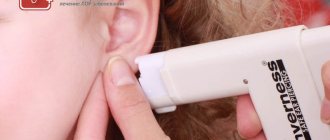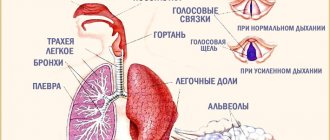Causes of an open mouth during sleep
If a person sleeps with his mouth open, the reasons may include difficulty breathing through the nose. As a rule, this is facilitated by allergies, adenoids, deviated nasal septum and apnea. In addition to chronic forms of diseases, there are temporary difficulties with nasal breathing - this refers to the influence of colds.
When sleeping with your mouth open, the reasons may lie in such areas as:
Respiratory disorders
The disease often occurs in adults with unresolved problems with the respiratory organs. In situations where there is nasal congestion, fever and sore throat, a person cannot breathe normally. Accordingly, you have to sleep with your mouth open.
Seasonal ARVI and such chronic forms of diseases as:
- rhinitis;
- sinusitis;
- sinusitis.
Causes mouth opening during sleep, weakness in strength and general physical malaise. A timely visit to an otolaryngologist will help correct the situation. As a preventative measure, doctors recommend annually relaxing in the mountains or on the sea coast among eucalyptus trees. The air in such an area helps to normalize the functioning of the respiratory organs and also reduces the likelihood of allergic manifestations.
According to somnologists, people whose mouths open when sleeping do not adopt the correct posture while resting. Incorrect body positioning includes sleeping on your back. In addition, the condition is facilitated by a low pillow when the head is thrown back and the teeth open.
Patients who move restlessly in bed during sleep often end up face down. Thus, there is a slight deformation of the mouth or the nose sticking into the pillow. Subsequently, the person has to open his mouth slightly to avoid suffocation.
In view of this, a dilemma naturally arises as to what to do in this situation. Somnologists recommend performing a simple procedure at night - inspecting the bed for a comfortable location. You should lie down for a few minutes, assess the presence of discomfort and, if possible, eliminate it. Additionally, take soothing herbal tea, prevent light from penetrating through the curtains and ventilate the room. This will allow you to sleep peacefully and prevent your mouth from opening.
Weakening of the orbicularis facial muscle
Another factor that will cause your mouth to open at night is a weakening of the orbicularis muscle. As a rule, this condition is diagnosed in childhood due to the fact that the muscle in children has not yet been trained. The disease is recorded in older people. This condition occurs due to age-related changes in the loss of elasticity of muscle fibers.
Attention! Weak orbicularis facial muscle in children is considered normal up to 2 years of age. If the problem occurs at an older age, consultation with a medical specialist and daily exercise are recommended. If left untreated, in the future, the child faces enlarged adenoids and malocclusion.
Treatment of the disease begins with a visit to an ENT doctor. After studying the problem, the doctor prescribes comprehensive measures to neutralize the disease. Such measures include exercises on facial expressions and self-massage.
Problems in the field of dentistry
Dental diseases, on the one hand, do not interfere with breathing, but on the other hand, they force a person to keep his mouth open. First of all, it is not aesthetically pleasing. Secondly, the likelihood of infection with pathogenic microbes that worsens health increases. In addition, there is an unpleasant odor from the oral cavity and there is a risk of developing carious deposits.
The way out of the situation is to have annual preventive examinations with dentists. This is also true for those who do not experience pain and generally feel good. Doctors advise:
- Visit the hygiene office to clean teeth from carious stones at least 2 times a year.
- Brush your teeth correctly.
- Use rinses and other procedures prescribed by your dentist.
Neuralgic disorders
Opening of the mouth during sleep can be provoked by sluggish and not manifested symptoms of a neurological disease. Often illnesses occur in hidden forms, i.e. without showing clinical signs. However, this gives rise to an advanced form of the disease. The main symptomatic picture (especially in childhood) is a high level of saliva, a sagging tongue and an open mouth during sleep.
If such signs are detected, you should immediately make an appointment with a neurologist. As a preventive measure against neurological disorders, doctors recommend:
- reduce psycho-emotional stress;
- shares exciting problems with family and friends;
- do not refuse help;
- rationally distribute time for work and rest.
Dental problems
Why does a person sleep with his mouth open? Dental diseases, although they do not interfere with breathing, still lead to the opening of the mouth. This increases the risk of infection by pathogenic microbes that worsen health. There is also an unpleasant odor from the oral cavity, and there is a risk of caries.
In this case, it is necessary to undergo preventive maintenance at the dentist every year. This also applies to those who do not have pain. Doctors recommend:
- Go to the hygiene office to clean your teeth from carious stones at least 2 times a year.
- Brushing your teeth correctly.
- Carry out rinses and other procedures prescribed by the dentist.
The Importance of Closed Sleep
Typically, people who can open their mouths in their sleep snore. Sometimes a slightly open mouth is observed in children, especially when they are dreaming about something. It is noteworthy that the reasons may be different. However, doctors note that the main reason lies with the canals located in the nose, sinuses and throat. Thus, swelling may form in the oropharynx or the adenoids may enlarge.
It is important to understand that nature has provided the human body with a closed mouth when breathing. Since air enters through the nose, where it is cleaned and warmed. Therefore, if breathing passes through the mouth, then a lack of oxygen saturation in the blood develops. In other words, only through nasal breathing do the lungs expand 100%. If you open your mouth and breathe like that, only the upper roots of the lungs will work.
Further, the importance of closed-mouth breathing is also important to reduce the risk of hypoxia, in which the brain tissue is unable to fully oxygenate. In childhood, this is fraught with mental retardation.
Sleeping with your jaws unclenched is also dangerous because there are no antibacterial substances in the cavity. Which, naturally, promotes the development of pathogenic microorganisms. Hence the bad breath, because... When breathing through the mouth, the mucous membrane dries, the secretion of saliva, which kills germs, decreases.
Mouth breathing: information for parents
Imagine the situation:
A little girl of seven years old plays on the floor in the hall, coloring pictures. Mom watches her, and as the girl concentrates on choosing the color of each detail, mom notices that the girl's mouth is open. But the girl’s brother is sitting next to her, and he does not have such a feature.
Breathing through the mouth
What is this? Nice trait or dangerous symptom?
Most people are unaware that mouth breathing can pose serious health risks.
If your child has a habit of opening his mouth, you can correct it. It is important from childhood to teach a child to breathe correctly through the nose in order to avoid future problems with the growth and development of teeth, speech disorders and sleep apnea (syndrome of night breathing through the mouth, in which incomplete oxygenation occurs and the quality of sleep deteriorates).
The essence of the problem
For some people, an open mouth is a habit: the jaw muscles automatically relax when a person is concentrating on something else. For others, this means improper breathing, where the air flow is not through the nose, but through the mouth.
A healthy person, when breathing correctly, always keeps his mouth closed, inhaling and exhaling through his nose.
Treating open-mouth behavior in adults is somewhat challenging: Many people do not notice this feature, while others experience social discomfort and insecurity due to an often open mouth. It is not easy for adults to understand the reasons why they cannot keep their jaw clenched at all times.
Should you pay attention?
It may seem that the habit of opening your mouth means nothing and that such stupidity is not even worth worrying about, that it is easy to correct and is not at all dangerous - none of this is true.
You need to pay attention, and the sooner the better.
Consequences of mouth breathing
Braces – If your mouth is often open, the process of straightening a row of teeth with braces will be longer and more difficult.
In this case, the gaps between the teeth are difficult to eliminate, and at the end of the treatment, even if it was successful, the teeth, without the support of the braces, can return to their original places.
A new visit to a specialist will be required and the course of treatment will have to be repeated from the very beginning.
Speech – if a child is used to keeping his mouth open, he may have difficulty pronouncing some sounds. The most common problem for such children is the inability to pronounce the sound “S”. This occurs because the open mouth accompanies the so-called “tongue thrust” during swallowing and speaking.
Development of teeth and facial muscles - it is important to realize that the correct growth of bones and muscles has a serious impact on the future appearance of the child.
A child with a habit of keeping his mouth open is likely to have flatter facial features, unpronounced cheekbones, an elongated oval face, sunken eyes and a narrow lower jaw.
By teaching your child to breathe through his nose in time, you will prevent these undesirable consequences.
Oxygen flow during sleep. If a child or adult breathes through his mouth during the day, he also breathes at night.
Breathing through the mouth or insufficient air flow is the beginning of sleep apnea syndrome - in this case, the blood is insufficiently enriched with oxygen, and the influx of carbon dioxide increases.
If during night sleep the brain and other tissues of the body are not sufficiently saturated with oxygen, the ability to learn and concentrate deteriorates. This leads to problems at school and at work. In adults, chronic fatigue and confusion are also present.
Why does the habit of breathing through the mouth appear?
It is difficult to determine a single cause for each case, but many patients with this habit have the following factors in common:
Airway obstruction. Often the habit of opening the mouth begins with the inability to breathe through the nose: allergies, chronic colds or nasal congestion, enlarged adenoids and tonsils, asthma, broken nasal cartilage and many other conditions make it difficult to breathe properly, in which case the patient is forced to breathe through the mouth.
The problem is that after eliminating the cause of airway obstruction, the habit of breathing through the mouth remains, since the incorrect reflexes of breathing, swallowing and speech developed over a long time come into force.
This requires the help of a specialist in myofunctional therapy (a set of special exercises that train the child in the correct position of the tongue at rest, normal closing of the lips and nasal breathing).
Breathing through your mouth while sleeping
Thumb sucking in childhood. If a child often keeps his fingers in his mouth during childhood, the muscles of the mouth and jaw will develop in accordance with this habit. When a finger or other object is in the mouth, the lips cannot close completely and a reflex is formed to push out the tongue during swallowing and speech.
Even if you wean your child from sucking his fingers, this does not mean that the habit of an open mouth will go away on its own; the same thing happens here as with airway obstruction - the reflexes of breathing, swallowing and speech are deformed. In this case, you need to contact specialists in myofunctional therapy and orthodontics.
Short frenulum of the tongue. This is a congenital feature of some children, when the frenulum does not allow the tongue to move freely, which affects the breathing process and speech development. Most often, this defect is corrected at an early age with a simple surgical procedure.
But those who are accustomed to restrictions and incorrect tongue position experience more difficulty in eliminating mouth breathing. Such people need the help of a specialist who will help restore proper breathing with the help of special exercises before and after surgery.
At the end of the course of treatment, the process of proper breathing becomes easy and natural.
What should parents do?
If you have changed one or more of your child's mouth breathing symptoms, consider the following tips:
- Watch yourself and your children, pay attention to cases of open mouth. When and how often during the day does this happen?
- Determine if airway obstruction is possible, have you had breathing problems in the past?
- Contact a specialist in breathing and sleep quality, it may be worth conducting a sleep quality study for you or your child (the study can be done at home or in a clinic) based on the results of the examination, the doctor will tell you where to start
- Contact a myofunctional therapy specialist. Before starting treatment, a complete analysis of the data is carried out for the presence of the symptoms listed in the article and other symptoms, even if the doctor himself is not able to provide the necessary assistance, he will definitely refer you to a related specialist indicating the causes of breathing problems in you or your children
Useful article?
Save so you don't lose!
Source: https://www.32top.ru/stat/2223/
Top 6 ways to sleep with your mouth closed
Healthy people breathe through their nose. But if your nose is stuffy, you have an allergy or an acute respiratory viral infection, then nasal breathing is difficult. However, there are medical recommendations to eliminate the problem:
- If you have a runny nose and nasal congestion. In such a situation, drops with a vasoconstrictor effect will help. But doctors warn that medications should not be taken continuously. The course of treatment is a maximum of 7 days. Otherwise, addiction will occur.
- Allergy remedies. Often the way out of the situation is to prescribe medications with hormones. However, only a doctor prescribes such therapy and only as an auxiliary treatment in eliminating allergies.
- Surgical intervention for adenoids and apnea. These treatment methods are used in extreme cases, because... There are effective therapeutic methods.
- A method of focusing on breathing. When attending yoga courses, trainers teach proper breathing. The usefulness of concentrating on the quality of breathing allows you to eliminate an open mouth during sleep, reduces anxiety and stress levels. Daily practices during daylight hours allow you to fall asleep calmly and with your mouth closed.
- Sleep in comfort. At first glance, the method seems obvious. However, there are many factors that trigger mouth opening during sleep. For example, dirt and dust in the bedroom and an unclean bed are pathogenic factors. It is recommended to buy an air purifier and humidifier.
- Mouth guard or pacifier for adults. The device changes the position of the tongue and fixes the jaw in a closed position. Special jaw retainers in the form of facial bandages have also been developed.
Important! When the mouth is open, salivation decreases. As a result, the perception of taste sensations is disrupted, and problems arise in chewing and swallowing food.
If dry mouth is accompanied by pain, cracks in the mucous membranes and corners of the lips, then you should make an appointment with a therapist. The need is due to the fact that this may be a sign of a hidden disease of internal organs and systems.
It should be noted that getting rid of the problem is quite simple. It is worth devoting time and attention to this, and the quality of life will increase several times. And colleagues, friends and relatives will be doubly pleased to communicate if the interlocutor smells pleasant.
Most people, when they sleep, open their mouths and have no idea why they open on their own at night, and what this can lead to. But some people have the habit of sleeping with their mouth open.
Neurological disorders
Why do people sleep with their mouths open and tongue raised? The cause may be the slowly occurring and not manifested symptoms of a neurological disease. Often the disease occurs in a latent form. But this leads to an advanced form of the disease. Symptoms often include excessive salivation, a drooping tongue, and an open mouth during sleep.
If such signs are detected, you need to visit a neurologist. For prevention, doctors advise:
- reduce psycho-emotional stress;
- talk about exciting problems to family and friends;
- do not ignore help;
- correctly distribute time for work and rest.
Why do people sleep with their mouths open? The reasons may be different, they must be eliminated immediately, then the condition will return to normal.
Why, when a person sleeps, his mouth automatically opens
You may have a weakened orbicularis facialis muscle.
Children usually suffer from this because this muscle is not yet as developed as in adults. But this may be considered normal until the child is 3 years of age or older. If your child suffers from this problem in his older years, then you need to visit a doctor who will tell you how to train this muscle. If you do not do as the doctor recommended, then the child will have problems in the future. But sometimes this disease also occurs in older people; this may indicate a loss of elasticity of the fibers of the circular muscles on the face.
Sleeping with your mouth open may indicate disorders related to the respiratory system.
Adults usually suffer, since they most often do not solve the problem with these organs. For example, a common runny nose, a stuffy nose, and it is clear that it will be difficult to breathe through one nose, so the mouth opens during sleep.
Uncomfortable posture during sleep.
For example, you can take people who often move on a bed, sofa, etc., they may often lie face down. Based on this, the nose can thus close, therefore the mouth opens automatically. Of course, you can get rid of this very easily.
Experts recommend checking your sleeping place for discomfort before going to bed, so to speak. You just need to lie down in a position that is comfortable for you, lie there for a few minutes, if you feel discomfort, just somehow eliminate it (turn over to the other side, adjust the pillow). If desired, drink herbal tea, ventilate the room, this will all help you fall asleep more soundly and also prevent your mouth from opening during sleep.
Experts who live in New Zealand have conducted research and proven that if you sleep with your mouth open often enough, it can affect the condition of your teeth, leading to caries or dental erosion. This can be explained by the fact that if a person sleeps with his mouth open, his oral cavity becomes dry, hence the decrease in saliva, which protects a person from the entry of unfavorable microorganisms into our body. It turns out that much more acid is released than necessary, because when you sleep with your mouth open, some of the acid comes out. Based on this, due to acid we can get erosion, and in rare cases, the development of caries.
The very first thing to do is go to the doctor. He will look at you and tell you what to do, i.e. will give you advice or refer you to other doctors who will help you get rid of this illness.
When children drool in their sleep, for most it only causes touching smiles. The reasons are clear - in infants, increased salivation is caused by teething, and older children, having worked hard during the day, sleep so soundly that the muscles supporting the jaws completely relax, and a thin stream of liquid flows freely from the mouth.
For adults, the picture does not look so touching, and waking up on a pillow wet from your own saliva is not very pleasant. In addition, it is completely unclear why an adult drools during sleep and whether it is possible to somehow combat such an unaesthetic phenomenon.
Weakness of the orbicularis facialis muscle
Weakness of the orbicularis facialis muscle is the main reason why older people sleep with their mouths open. It is also present in young children under 2 years of age. Their orbicularis facial muscles have not yet been trained. But if this problem does not disappear with age, then it needs to be addressed urgently. It can lead to malocclusion.
To avoid weakness of the orbicularis facial muscle, you need to consult a specialist. Another effective method is to perform facial exercises and massage.
Functions of saliva
To understand these issues, you need to understand what saliva is and where it comes from. Saliva is a liquid, transparent secretion that is produced by the salivary glands located in the oral cavity. It performs several important functions in the body:
- takes part in the digestion process, as it contains enzymes that break down food;
- protects mucous membranes from drying out and partially from pathogens;
- protects tooth enamel from destruction by regulating the acid balance in the mouth;
- ensures rapid regeneration of damaged mucous membranes;
- helps eliminate toxic substances from the body that enter the saliva and are expelled when it is spat.
Saliva is produced reflexively in the amount required for the body. Moreover, this process occurs constantly, including during sleep.
A sleeping person drools from his mouth, usually when for some reason his salivation has increased. And a relaxed body does not have time to react in time and swallow a large amount of liquid.
Causes of salivation
All the reasons why an adult drools during night sleep are associated with only three main factors: too much saliva, the swallowing process is difficult, or the muscles that hold the jaw are very relaxed. And sometimes two or all three factors can be combined at the same time.
Here are just a few situations in which drooling usually occurs during sleep:
But the most prosaic and common reason why saliva flows in a dream is banal overwork and too much sleep. In rare cases, excessive salivation is the body’s reaction to a vivid dream associated with a feast or other “appetizing” subjects.
How to fight
Since no one wants to drool all night, many people ask whether there is any way to combat this phenomenon. Although this problem is not a disease, it is impossible to eliminate it without finding out the cause.
There are no pills or other drugs that regulate the amount of salivation. Therefore, you will have to make some effort.
First, you need to exclude the possibility of exposure to external irritating factors: make sure that the bedroom air is clean and moderately humid, there are no allergens and toxins, and the optimal temperature for sleep is maintained: 16-22 o C. Do not smoke in the bedroom under any circumstances. Leave the ashtray filled overnight. Tobacco smoke will soak into your upholstery and walls, leaving you constantly exposed to toxic substances.
If you usually sleep on your back, try changing your position. It is not possible to consciously control your body position when you sleep. Therefore, you need to place a roll of blanket under your side, which will not allow you to completely roll over onto your back. Some people sew a pocket to the back of their pajamas and put a small ball in it, which will prevent you from sleeping on your back.
Go to the dentist and make sure your gums and teeth are healthy. If caries, periodontal disease, stomatitis or other problems in the oral cavity are discovered, undergo a course of treatment or remove teeth that cannot be saved. Otherwise, the infection will spread further, and drooling at night will become the smallest of the existing bunch of problems.
If you have chronic respiratory diseases, be sure to treat them and try to avoid exacerbations. In the acute form, little can usually be done, but vasoconstrictor nasal drops, which can be dripped into the nose before bed, reduce salivation to some extent.
If the above measures do not produce results, go to an appointment with a neurologist. Especially if you are often tormented by nightmares or dreams with such strange plots that no dream book can explain. You probably have neurological problems caused by stress, chronic fatigue, or other non-pathological reasons.
Limit evening alcohol intake and avoid sleeping pills. If you find it difficult to relax and fall asleep quickly, herbal infusions or natural teas can replace them. As a last resort, buy ready-made herbal pharmaceutical preparations with a mild sedative effect.
Check other medications you take regularly. Some of them produce copious amounts of saliva as a side effect.
Do not hesitate to consult a doctor if the problem really bothers you and you cannot solve it on your own. A constantly wet pillow will irritate you all the time and can cause the development of insomnia or neurosis. When it comes to health, there are no trifles. And all problems that arise must be solved as quickly as possible, even those seemingly insignificant at first glance.
Our mouth is constantly moistened with saliva, and this happens for a reason. Saliva protects mucous membranes from the proliferation of harmful microbes. If we sleep with our mouth open, saliva evaporates, which leads to drying out of the oral mucosa. In such conditions, pathogenic microorganisms have room to roam! As a result, we are at greater risk of catching a cold.
Neurology
Our list closes with another subtle, but very unpleasant misfortune called neurological diseases; they often occur in a latent form and apparently practically do not manifest themselves, thereby creating a risk of triggering. Symptoms of neurology in children in particular can include increased salivation and sagging of the tip of the tongue. If you experience such symptoms, you should immediately consult a doctor.
Solution
Avoiding stress and not taking everything to heart will help avoid some neurological disorders. Don’t be afraid to share this problem with your loved ones, and also don’t be shy about asking them to watch you.
Sleep is a serious matter and should not be taken lightly.
Recent medical studies have shown that the habit of sleeping with an open mouth, which is common to a huge number of people, is dangerous. An open oral cavity provokes the development of caries, since due to dry mouth, acidity increases and the enamel begins to suffer, after which caries appears.
The reason for opening your mouth during sleep can be breathing problems, and not only them. It is important to check your bed for its comfort; perhaps your mouth opens in your sleep due to an uncomfortable, forced position. Therefore, the elasticity of the mattress and the shape and softness of the pillow also play a role. Much also depends on the angle of the head during sleep; if the head is thrown back in sleep, then the mouth opens as if by itself. By the way, one of the elementary reasons for an open mouth during sleep is a stuffy nose. It is important to ensure the ability to breathe fully through the nose; sometimes it is made difficult by a deviated nasal septum, which an ENT will help correct, or existing problems with the adenoids, after which the habit of sleeping with your mouth open remains. In general, the key to solving the problem is often located in the sinuses or oropharynx.
It is not for nothing that nature designed the human breathing process in such a way that the mouth was closed and the air passed through the nose, simultaneously warming up and purifying there. As a result of dry and unpurified air entering the bronchi and trachea, tracheitis or bronchitis may develop. Bacteria and dirt that freely enter the human body are also dangerous, as they can be pathogens. When breathing through the nose, most potentially dangerous bacteria are eliminated as they are captured by mucus and excreted along with it. Even though the mouth is larger than the nose, the air passing through the mouth cannot sufficiently saturate the blood with oxygen. The lungs are fully expanded only when breathing through the nose, and using the mouth in this process does not allow them to open properly; the air only opens the tops of the lungs. Scientists have even established a negative effect of this method of breathing on the development of children - due to a lack of oxygen, brain tissue does not receive sufficient saturation, which impedes the child’s mental development, and due to hypoxia, the baby’s skull can even change. The developing brain tissue reacts very sensitively to a lack of oxygen. In adults, lack of oxygen can even lead to heart attack and stroke, so if your mouth opens during sleep, you shouldn’t joke about the person, it’s better to help solve this problem. To some extent, a special mouthguard or pacifier that changes the position of the tongue, as well as jaw clamps that do not allow the mouth to open even after relaxing the muscles, help.
Due to the drying of the mucous membrane, which is caused by opening the mouth in sleep, there will be no saliva in the mouth in the required amount, that is, there will be no ability to protect itself from microbes, and bad breath will appear. Mouthwash can help a little, but this, of course, is not a panacea - you need to solve the problem at the root.
Spontaneous opening of the mouth can occur as a result of relaxation of the facial muscles. A lot of such examples can be seen in long-distance transport. Moreover, in adults, most often, an open mouth during sleep is directly related to the problem of snoring. But often children, who, as is known, do not snore a priori, also sleep with their mouths open.
Sleep is the most beneficial form of rest for the human body, allowing it to thoroughly recover. Doctors distinguish different types of sleep, and emphasize that not all of them are equally beneficial. So, sleeping on your back can be dangerous for those people who are predisposed to sudden cessation of breathing. Sometimes, a person may not even know that he is included in such a risk group - only a doctor can determine the predisposition to respiratory arrest. Although there is a factor that indicates its presence - this is the already mentioned snoring (when a person sleeps on his back, it only intensifies). In addition, snoring interferes with the normal supply of oxygen to the brain, so a snoring person not only interferes with the sleep of those around him, he himself at this moment rests much less efficiently than with restful sleep.
Any mother knows that babies should not be placed on their backs while sleeping, especially if they spit up frequently. In such a situation, the child may simply suffocate. And it is considered more useful and consistent with physiological requirements when the child sleeps on his side.
But no matter how much scientists unravel the mysteries of the sleep phenomenon, many mysteries still remain unsolved, which push specialists to conduct further research in this area. For example, it has been found that a person whose sleep has been interrupted many times will feel worse than someone who has not slept at all. The myth is that modern people sleep much less than their predecessors due to the presence of artificial lighting at night, the use of gadgets, etc. was debunked. After observing the inhabitants of hunting tribes living in Africa and South America, scientists found that they sleep even less than 6.5 hours a day.
An interesting point was discovered when observing dolphins, whose brains are only half asleep, while the other half is awake, although the dolphin itself is resting. It turned out that the human brain has similar abilities - one hemisphere during sleep in the team of experiment participants was more active than the other during sleep. Scientists have called this ability very useful for survival in an unfamiliar environment.
Regarding the need for sleep, experts have not come to a common conclusion, since the need for this type of rest is individual for each person - for some, six hours is enough, while others manage not to get enough sleep in nine. But, knowing his “norm” of sleep, a person can already judge whether he has rested enough.
The famous German philosopher Arthur Schopenhauer argued that nine-tenths of our happiness depends on health. Without health there is no happiness! Only complete physical and mental well-being determine human health, help us successfully cope with illnesses and adversities, lead an active social life, reproduce, and achieve our goals. Human health is the key to a happy, fulfilling life. Only a person who is healthy in all respects can be truly happy and able to fully experience the fullness and diversity of life, and experience the joy of communicating with the world.
They talk about cholesterol so unflatteringly that they are just right to scare children. Do not think that this is a poison that only does what destroys the body. Of course, it can be harmful and even dangerous to health. However, in some cases, cholesterol is extremely necessary for our body.
The legendary balm “star” appeared in Soviet pharmacies in the 70s of the last century. It was in many ways an irreplaceable, effective and affordable drug. “Star” tried to treat everything in the world: acute respiratory infections, insect bites, and pain of various origins.
The tongue is an important organ of a person, which not only can chat incessantly, but without saying anything, it can tell a lot. And I have something to tell him, especially about health. Despite its small size, the tongue performs a number of vital functions.
Over the past few decades, the prevalence of allergic diseases (ADs) has reached epidemic status. According to recent data, more than 600 million people worldwide suffer from allergic rhinitis (AR), approximately 25% of them in Europe.
For many people, there is an equal sign between a bathhouse and a sauna. And very few of those who realize that the difference exists can clearly explain what this difference is. Having examined this issue in more detail, we can say that there is a significant difference between these pairs.
Late autumn, early spring, periods of thaw in winter are a period of frequent colds for both adults and children. From year to year the situation repeats itself: one family member gets sick and then, like a chain, everyone suffers a respiratory viral infection.
In some popular medical weeklies you can read odes to lard. It turns out that it has the same properties as olive oil, and therefore can be consumed without any reservations. At the same time, many argue that you can help the body “cleanse” only by fasting.
In the 21st century, thanks to vaccination, the prevalence of infectious diseases has significantly decreased. According to WHO, vaccination prevents two to three million deaths per year! But, despite the obvious benefits, immunization is shrouded in many myths, which are actively discussed in the media and in society in general.
When children drool in their sleep, for most it only causes touching smiles. The reasons are clear - in infants, increased salivation is caused by teething, and older children, having worked hard during the day, sleep so soundly that the muscles supporting the jaws completely relax, and a thin stream of liquid flows freely from the mouth.
For adults, the picture does not look so touching, and waking up on a pillow wet from your own saliva is not very pleasant. In addition, it is completely unclear why an adult drools during sleep and whether it is possible to somehow combat such an unaesthetic phenomenon.
What to do?
First of all, you need to find out why you breathe through your mouth. Common causes of difficulty in nasal breathing include, for example, allergic rhinitis, enlarged adenoids, deviated nasal septum, and apnea. Also, temporary difficulties with nasal breathing occur due to the usual
Due to the fact that the mouth is constantly open, when swallowing, a sleeping person, instead of pressing his tongue against the upper palate, pushes it forward, swallowing air. The result is belching.
Dental diseases
Indeed, teeth have nothing to do with the respiratory organs, but they still force you to keep your mouth open. This condition can lead to an increased risk of germs and poor health. In addition, it can cause dental diseases and bad breath.
To solve this problem, people need to visit the dentist's office at least twice a year. In addition, it is necessary to maintain oral hygiene (brush your teeth twice a day, use dental floss).









